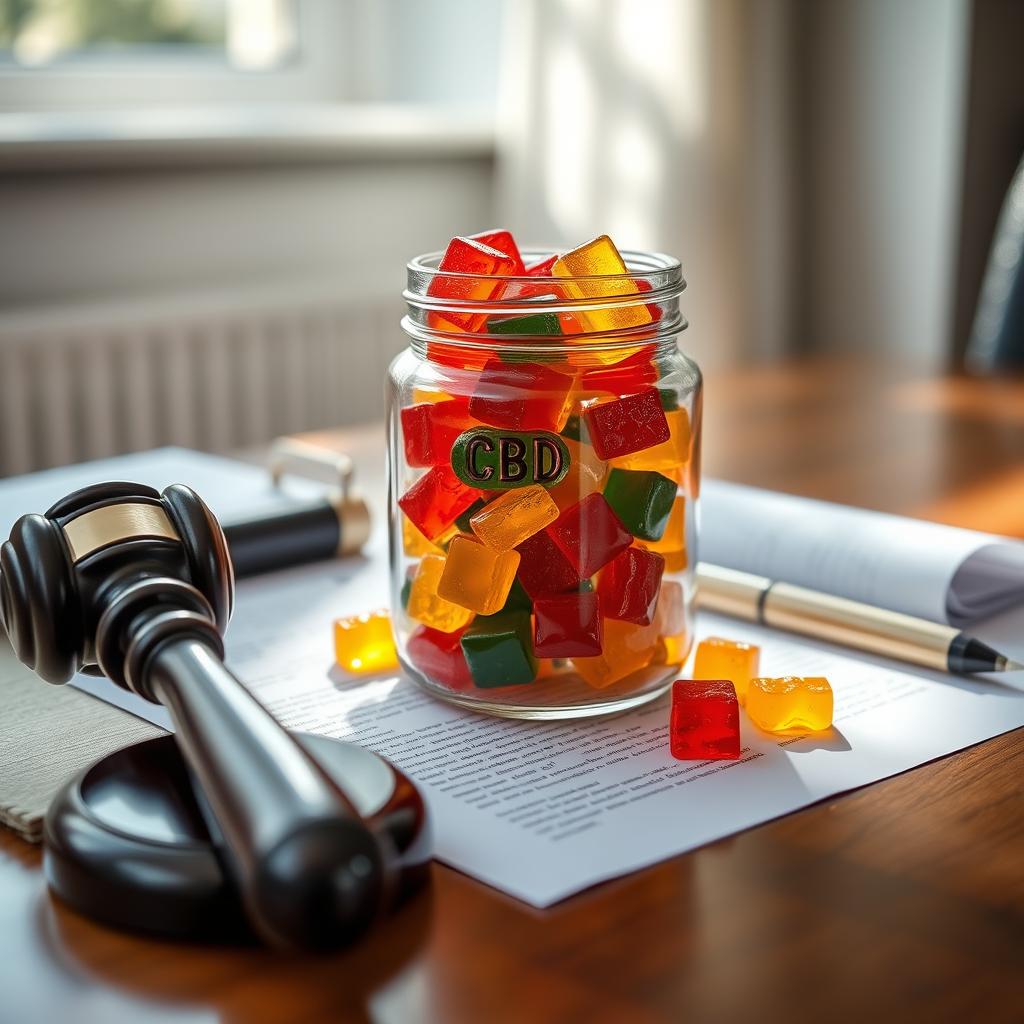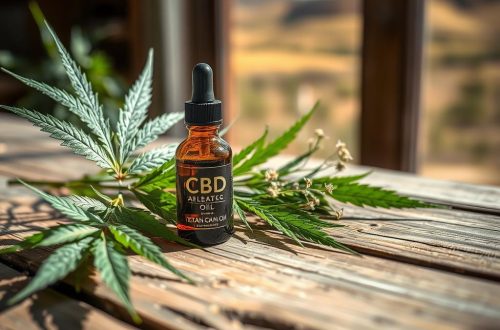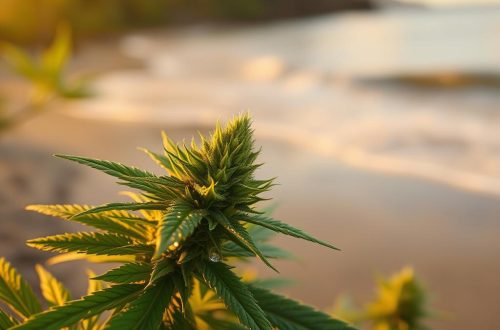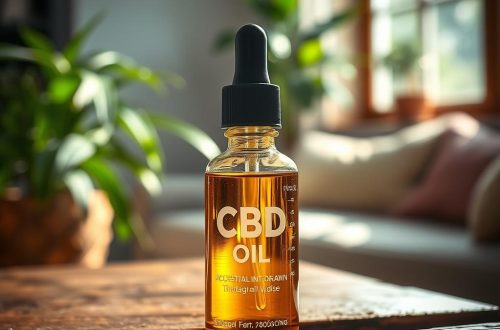Many consumers cannot easily get a respectable brand of CBD. There is a focus on superiority, clarity, and promises to be kept. Therefore, when a renowned brand, such as JustCBD, is involved in a legal dispute, it is bound to cause many people to begin considering the pros and cons of the products. A substantial JustCBD lawsuit questioned the company’s labeling and the actual contents of their products. This has led people to ask themselves how much of what is claimed to be in CBD products is actually true.
Why There is a Library of the JustCBD Pegging at the Courts
One of the most central components of the action suit against JustCBD involves gross misrepresentation and false advertising. A good argument can be made that the consumers of CBD put their trust in these companies to disclose the right ingredients in their products, that include, for example, CBD content and the psychoactive compound in cannabis, THC. The JustCBD lawsuit asserts that the company defied this expectation by marketing products containing vastly different amounts of cannabinoids from what was labeled on the box.
These are not minor issues. The class action complaint declares that some of the products contain minuscule amounts of CBD than was promised; others, on the other hand, are accused of containing large-scale traces of THC when they were completely THC free. Such issues too are very important, since many people depend on the labels to achieve a proper dosage or effect and not experience any undesirable effects or risks from drugs. The lawsuits paint a picture of how the company, in cases, was able to get away with it as it was practicing unfair competition against its competitors.
Understanding Plaintiff’s Allegations: A Detailed Overview
The class action brought before the federal court does detail a number of significant allegations against SSGI Financial Services, which is the parent company of JustCBD. Here are the issues and complaints that are raised in the JustCBD lawsuit.
- Inadequate levels of CBD / mismatch from the labeling: The primary complaint to the grievance is that independent laboratory results demonstrated not once, but on several occasions, JustCBD lawsuit also submitted products with much less CBD than indicated. A consumer who is paying high prices for a recommended dosage will find that such a reflection eating up the price has no utility or healing effect.
- Hiding of the Content of Psychotropic Substances: Even more troubling is the assertion that other items which were meant to contain 0 or non-detect levels of THC were in fact not such as it was discovered upon the testing of the items. This is particularly of much importance for people who need to abstain from THC for purposes of most common drug tests which are required either by employers, courts, or even the individuals themselves (legal tumbleweed).
- Fraudulent advertising: The claim contends that JustCBD’s advertising and labeling was designed to be deceptive. By selling products with specific doses such as 500 milligrams of CBD or ‘THC Free’, it is alleged that a few purchasers were misled to buy the products when they would not have, under a different purchase structure.
The Evidence: What Prompted the Litigation?
Such a big case doesn’t simply pop up without reason. Usually, it is prompted by certain facts found in the process of collection of evidence. Regarding the JustCBD lawsuit, it was an independent laboratory analysis. Some markets and enthusiastic consumers do make independent studies of how much compound is present in any given CBD product from the market. Critical findings from their analysis, such as uncharacteristic disparities between the labeled content and the content of the field sampling, are the structural basis for the legal contention.
These particular lab results serve as significant documentation, supporting with science the subplots of accusations. When framed comprehensively, the plaintiff draws on these forms of evidence to demonstrate that the alleged mismanagement affects many product categories or relates to a larger problem of misconduct. A lawsuit states, however, that such a systematic gap could only result from either serious deficiencies in quality assurance or management decisions with an intention to shortchange the audience. However, as for the JustCBD lawsuit, the finding of these changes is the strongest among different versions or patterns of products.
Need for Proper CBD Labeling: Why is It Important?
Correctly understanding the significance of the JustCBD lawsuit is realizing that it is unreasonable to deviate labeling in the CBD sector. People consume CBD for various health purposes and one must observe the correct dosage to achieve the goals. With a product having lesser quantities of CBD than stated, a user will not likely have a positive response and might wrongly associate non-efficacy to CBD ability.
The concern on THC is even more grave in that case. A person might become unemployed or face other serious repercussions as a result of unintentional THC ingestion. For example, trace levels are career-ending for athletes, truckers, and public sector workers. This is the reason the accusations made in the JustCBD lawsuit are very distressing not only to the consumers but also to the authorities. Wellness is all about sincerity—and false claims break that all too easily.
JustCBD’s Position in Defense and the Industry Presentation
Faced with allegations, JustCBD changed its approach and gathered to actually defend itself, as usually occurs in such cases. When companies are involved in a JustCBD lawsuit, they often question the testing techniques that the plaintiffs have deployed and refute any or most claims regarding defects in the products. If the other organization has produced their own test results, they can supply resource material in rebuttal.
It must also be noted that the entire market of CBD products is still not fully regulated. The establishment of clear regulations has not been achieved by the FDA nor has it even attempted to do so; hence the subject of “Wild West” and brands with the worst quality having a chance. While this doesn’t justify any particular brand, it is a reason as to why mislabeling has been part of the industry. Lack of government intervention is largely the reason there have been numerous class action suits including JustCBD lawsuit among others as a means of keeping companies in check.
Consumers Tactics To Conquer The CBD Environment
The JustCBD lawsuit as a whole is something that may be very concerning for those who currently consume or entertain the consumption of CBD. But it is a good example of why it is very important to do one’s research. As a consumer, you can make choices regarding yourself.
These are several things to consider when buying CBD products:
- Insist on Independent Laboratory Test Results: Credible CBD Suppliers Nearly Always Publish Updated COAs or Third Party Lab Reports For Their Products. They contain the cannabinoids content of the product. A QR code or a link on the company’s page can assist with this. Although most of it is common sense, here it gets a little interesting where professionals tend to get complacent – this has to do with the so-called “Verify the Lab” techniques – which covers such interesting aspects like the external independent laboratory the certificates of analysis were issued by which must be accredited etc. One may be able to see if there is a report available but if so, one needs to read the report. Generally, COA lists the content of both CBD and THC, and this should correspond to the label information of the product. However, a JustCBD lawsuit claims otherwise in this regard.
- Look Out for Harmful Substances: A COA can also include tests for contaminants such as heavy metals, pesticides, or residual solvents. This is an indication that the brand is of good quality.
Following the aforementioned instructions can help minimize the probability of buying a labeled, but substandard product. It can be deduced from the issues that arose in the JustCBD lawsuit that such consumer vigilance is warranted.
Lawsuit: Potential Settlement Outcomes and Their Consequences
The class actions can be concluded in a number of ways. They can be dismissed by the judge, be tried, or most class actions are settled. Settlement means that a company without admitting any fault agrees to pay cash compensation to the consumers affected and sometimes agrees to stop the contested conduct. Various consumers who have been closely monitoring the progress of the JustCBD lawsuit are also looking forward to the kind of settlement that will ensure appropriate measures are put in place for improved quality assurance and assurance on better label improvement.
Regardless of how the case resolves itself, the JustCBD lawsuit case has created ripples already. This dispute is an alert to those other brands in the market selling health products that there are people who are watching them and are ready to sue them if they engage in dishonest activities. Such as this; below –; gave the writers overtime as consumer-driven accountability campaigns work to raise principles for the existing market which everyone will gain from. As I doubt I need or want to provide muscles for women training there also follows escalation of encouraging self-management within the belt particularly after news on the highly publicized JustCBD lawsuit would have ended up hurting the company on the negligence front thus prompting enhanced caution in avoiding such blunders again in the future.
What this Implies for the Future of CBD Regulation
Regulatory agencies almost always tend to get involved when known corporate actors find themselves in legal disputes such as the JustCBD lawsuit. Issues such as these, when they are resolved through the justice system in respect to the quality and safety of products tend to suggest failure of any regulatory framework. This case could raise the stakes for the FDA, together with other agencies, to make coherent and applicable laws regarding CBD on a national scale. The forms of protection would arise from every consumer-friendly rule that established a uniform market for all the players that did not compromise other manufacturers. This is enhanced by the absence provided by the JustCBD lawsuit, which will most likely result in increased competition, driving the development of good practices that will improve the industry as a whole, in the foreseeable future.
JustCBD Lawsuit: Frequently Asked Questions
- How do you mention the JustCBD case? The class action JustCBD lawsuit accuses the company of engaging in misleading advertisement and also selling misbranded CBD products. Primarily, the main allegations are that the products had a very low percentage of CBD and in some instances excessive THC as opposed to what had been indicated on the label.
- Has the JustCBD lawsuit been settled? Lawsuits can take a very long time. As at the end of 2025, there are still ways to go and issues to address. Class action suits, once commenced, sometimes drag on for years before they are concluded; either because the parties agree to a settlement or they go to trial and get a judgment. Don’t forget to check the latest and very recent updates of the status of the JustCBD lawsuit from the law news sites.
- Are JustCBD products safe to use? This legal action opens debates or ethical dilemmas regarding product standards, reliability of its labeling. It may not be that every single product is “dangerous” in terms of toxicity; however, the fact that there is undisclosed and more than advertised presence of THC and less than advertised amounts of CBD is troubling. It is not advisable although the consumers should check lab reports themselves before they buy the products. The currently underway JustCBD lawsuit highlights that there are issues in the industry that must be addressed properly.
- Where can I get reliable CBD products? Choose brands that embrace transparency. Top companies always provide COAs from third-party laboratories for each lot of products; these are current and easy to obtain. Their clients report satisfactory experiences and there is a certain degree of professionalism in how they do business. The JustCBD lawsuit provides a good case study on the necessity of relying on your own sources.
Conclusion
Having reviewed the evidence in the JustCBD lawsuit, it will be useful both for the whole industry of CBD and for the customers. There is an attack against the bond between a manufacturer and his flower – people CBD and THC inventories are labeled. The outcome of the Clifford and Lodge litigation memorandum is still pending but already this case is a significant moment for all concerned and one that throws in sharp focus the dire need to toughen up regulation and make bodies with powers to call firms to account. If anything, it closes the ring on the warfront for customers who must and should demand accountability and painstakingly screen every product offered. Hence, the resolution of the dispute in the case called ‘JustCBD lawsuit’ will bear some degree of importance to the possibility of improvement in such a way that any player whether a manufacturer or a customer would feel discontent.






